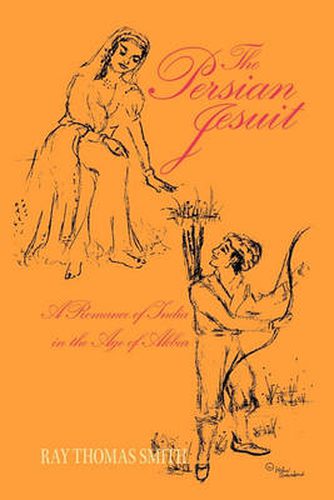Readings Newsletter
Become a Readings Member to make your shopping experience even easier.
Sign in or sign up for free!
You’re not far away from qualifying for FREE standard shipping within Australia
You’ve qualified for FREE standard shipping within Australia
The cart is loading…






This title is printed to order. This book may have been self-published. If so, we cannot guarantee the quality of the content. In the main most books will have gone through the editing process however some may not. We therefore suggest that you be aware of this before ordering this book. If in doubt check either the author or publisher’s details as we are unable to accept any returns unless they are faulty. Please contact us if you have any questions.
India like the rest of the world has always found lovers drawn passionately to each other in spite of society’s customs, preferences, and barriers. Marriage in sixteenth century India was customarily regarded as one of family arrangement, not of lovers’ choice or exciting romance. By the 1500’s, when Muslims had conquered large areas of the country, love across the lines of the major religions was considered an even greater threat to traditional marriage, Hindu or Muslim. Portugal’s colony of Goa and its Christian religion, arriving between 1500 and 1520, raised the obstacles to romance even higher. A young adventurer from a Muslim state, for example from Bijapur on India’s broad southern plateau, might find his curiosity aroused by militant Christianity’s Jesuit missionaries and dare to study under them in Goa. If that young Muslim were to meet a destitute Portuguese Christian girl and fall in love with her - indeed, find himself drawn into an astonishing romance - what would be the risks and penalties? Would the lovers be doomed to ostracism, or worse, by both their religious communities? The author has given the fated pair of lovers the names Aziz Ahmad Khan and Miralindo Bartolomeo, Aziz and Mira . The Persian Jesuit: A Romance of India in the Age of Akbar is their story.
$9.00 standard shipping within Australia
FREE standard shipping within Australia for orders over $100.00
Express & International shipping calculated at checkout
This title is printed to order. This book may have been self-published. If so, we cannot guarantee the quality of the content. In the main most books will have gone through the editing process however some may not. We therefore suggest that you be aware of this before ordering this book. If in doubt check either the author or publisher’s details as we are unable to accept any returns unless they are faulty. Please contact us if you have any questions.
India like the rest of the world has always found lovers drawn passionately to each other in spite of society’s customs, preferences, and barriers. Marriage in sixteenth century India was customarily regarded as one of family arrangement, not of lovers’ choice or exciting romance. By the 1500’s, when Muslims had conquered large areas of the country, love across the lines of the major religions was considered an even greater threat to traditional marriage, Hindu or Muslim. Portugal’s colony of Goa and its Christian religion, arriving between 1500 and 1520, raised the obstacles to romance even higher. A young adventurer from a Muslim state, for example from Bijapur on India’s broad southern plateau, might find his curiosity aroused by militant Christianity’s Jesuit missionaries and dare to study under them in Goa. If that young Muslim were to meet a destitute Portuguese Christian girl and fall in love with her - indeed, find himself drawn into an astonishing romance - what would be the risks and penalties? Would the lovers be doomed to ostracism, or worse, by both their religious communities? The author has given the fated pair of lovers the names Aziz Ahmad Khan and Miralindo Bartolomeo, Aziz and Mira . The Persian Jesuit: A Romance of India in the Age of Akbar is their story.